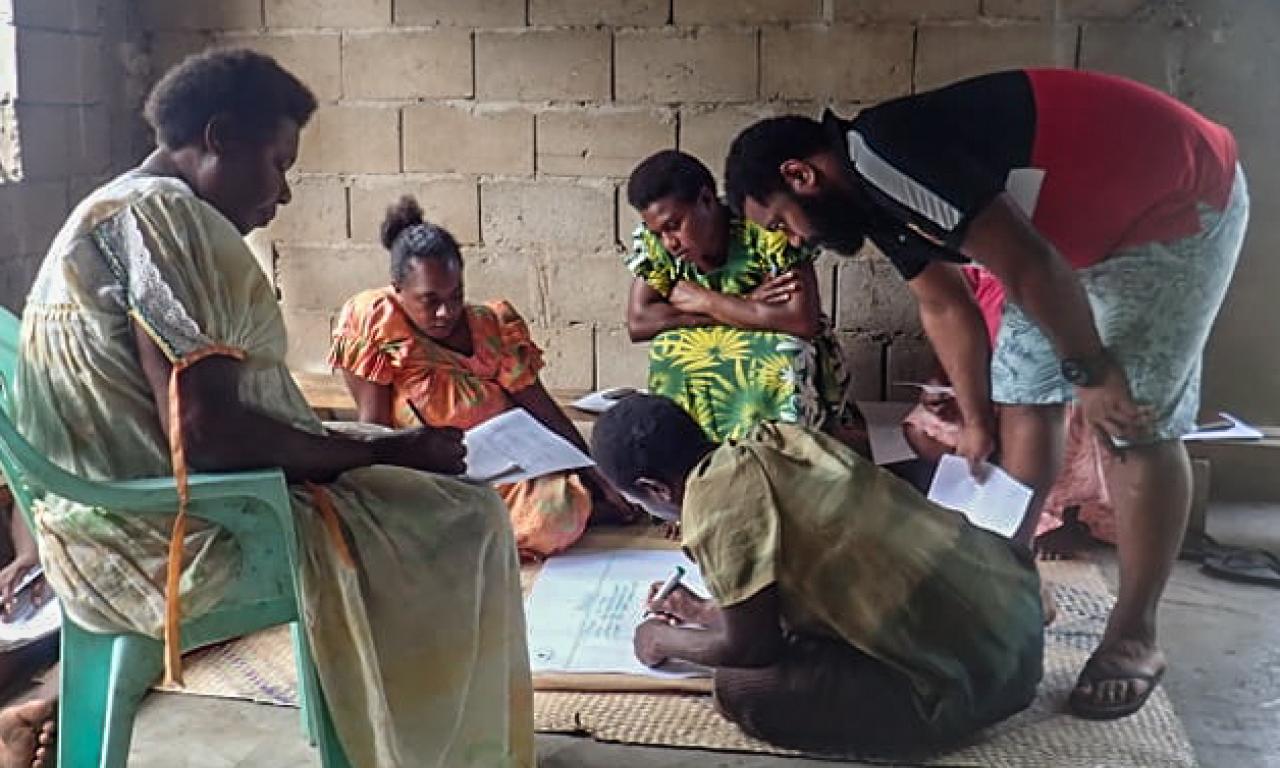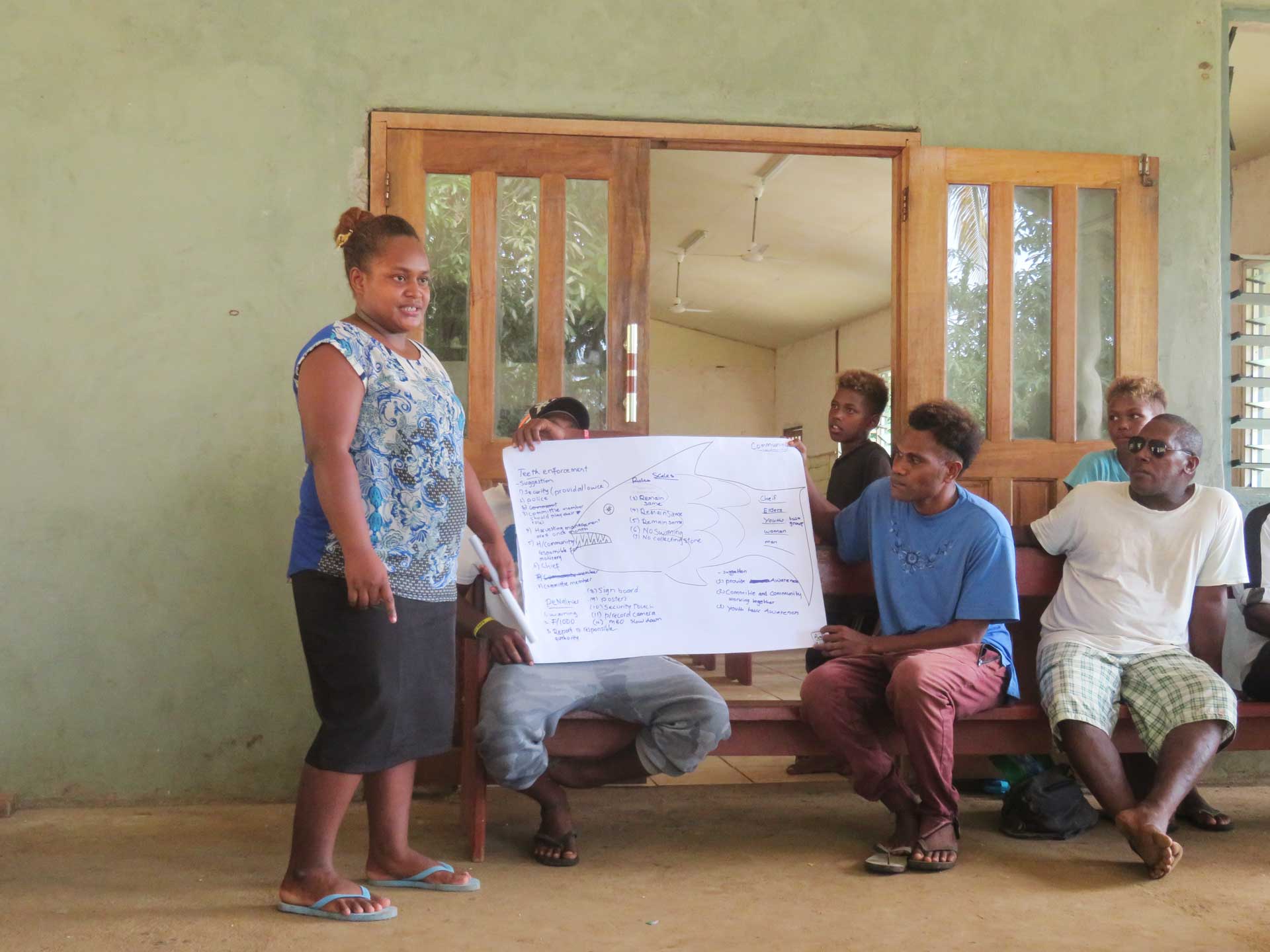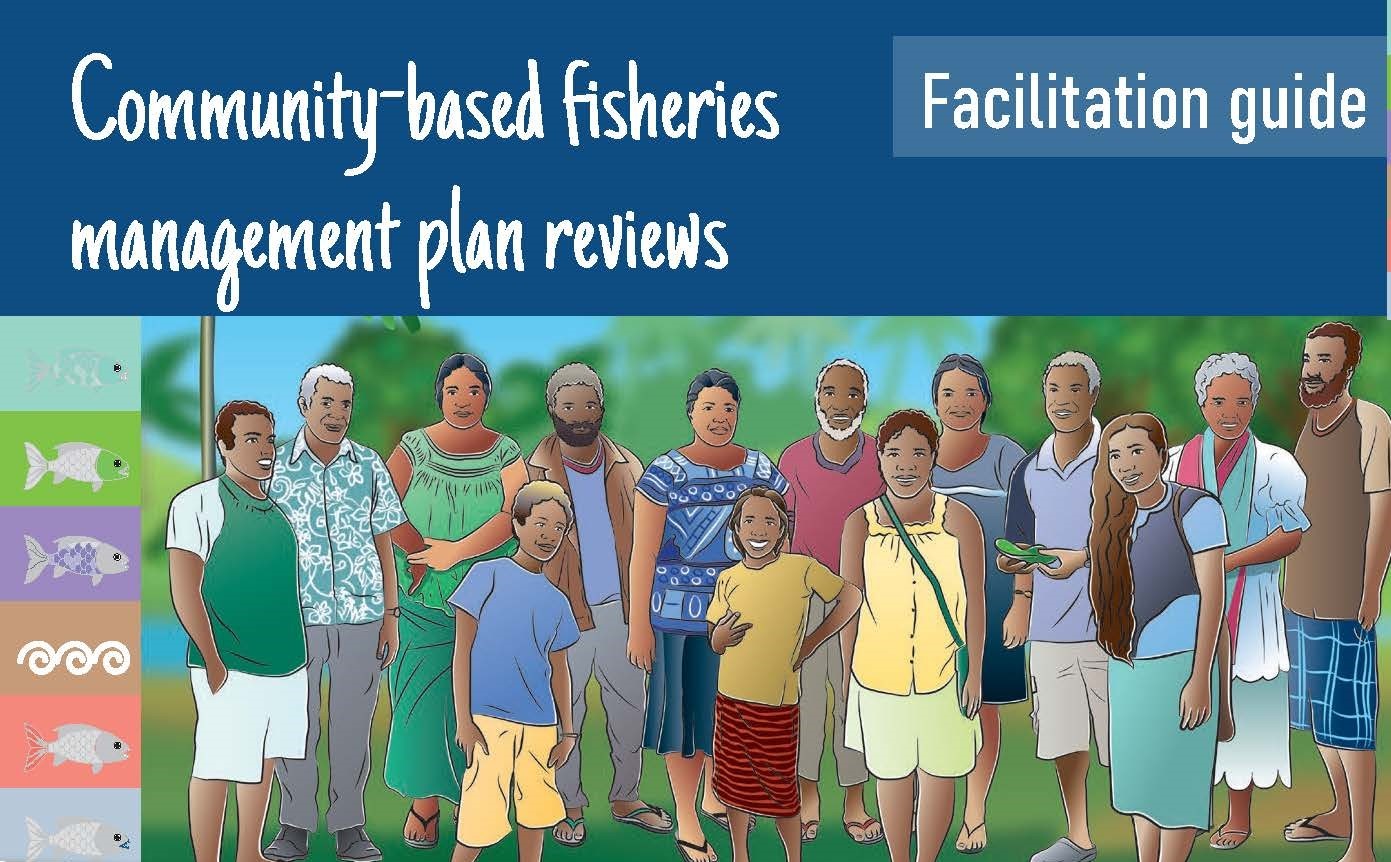
Noumea, New Caledonia – An interactive tool to support women, youth, community leaders on how to review their local fisheries management practices and knowledge was presented today to the Cultivating Equality: Advancing Gender Research in Agriculture and Food Systems Conference, a gathering of researchers from across different Pacific countries and CGIAR (Consultative Group on International Agricultural Research) centres.
Available on the Pacific Community (SPC) website, this Community-based Fisheries Management Plan Reviews – Facilitation Guide, co-published by SPC, WorldFish and the University of Wollongong, sets out a participatory process for women, men, and youth to have a say in what the rules are for fishing in their coastal area, who makes the rules and how they are enforced.
The guide offers tips to support facilitators in conducting effective participatory reviews of community-based fisheries management (CBFM), including through the active engagement of people of diverse backgrounds, ages, and genders. It is accompanied by a set of data collection sheets to record involvement of women, youth, and men in decision making.
“Community-based fisheries management is vital for food security and livelihoods in the Pacific. It allows each community to manage their fishing, harvesting and other effects of human use of their coast and marine areas. We need processes like this review to ensure that no one is excluded from decisions about their fish and aquatic foods, and as we know inclusive decisions are more likely to be upheld over time. The guide is designed to be used by community facilitators, with activities to capture indigenous knowledge and management aspirations, using oral storytelling and visual tools that can allow everyone to participate,” said Dr. Anouk Ride, Representative of WorldFish.

Community-based Fisheries Management is a key priority for coastal fisheries in the Pacific premised on the understanding that each community is responsible for its respective marine environment. It enables communities to assume this lead role in managing fisheries and adjacent coastal areas and resources. The guide uses a diagram of a fish that symbolizes the CBFM plan where participants write down their suggestions and decisions.
“In its first trials of the tool in Kiribati, Solomon Islands and Vanuatu, the tool was found to increase the role of women and youth in decisions about coastal fisheries management and in representation on decision-making committees,” said Céline Muron, SPC Information and Outreach officer.
The preparation of this guide was funded by the Australian Government through the Australian Centre for International Agricultural Research (ACIAR) and produced with support from the European Union and Government of Sweden through the Pacific-European Union Marine Partnership (PEUMP) Programme.

Useful link:
Community-based Fisheries Management Plan Reviews : https://bit.ly/3DxN23K
Media Contacts:
Doina Huso, Digital Communications and marketing specialist, WorldFish, D.Huso@cgiar.org
Lauren Robinson, PEUMP Communications Officer – Pacific Community l laurenr@spc.int
About Us:
WorldFish is a non-profit research and innovation institution that creates, advances, and translates scientific research on aquatic food systems into scalable solutions with transformational impact on human well-being and the environment. Our research data, evidence and insights shape better practices, policies, and investment decisions for sustainable development in low- and middle-income countries. WorldFish is part of One CGIAR, the world’s largest agricultural innovation network. Learn more at: https://www.worldfishcenter.org
The Pacific Community has been supporting development in the Pacific, through science, knowledge, and innovation since 1947. It is the principal intergovernmental organisation in the region, owned and governed by its 26 member countries and territories. Learn more at: www.spc.int
The Pacific-European Union Marine Partnership (PEUMP) Programme addresses some of the most serious challenges faced by Pacific countries. Among these are the increasing depletion of coastal fisheries resources; the threats to marine biodiversity, including negative impacts of climate change and disasters; the uneven contribution of oceanic fisheries to national economic development; the need for improved education and training; and the need to mainstream a rights-based approach and to promote greater recognition of gender issues to ensure inclusiveness and positive changes for Pacific Island people. This five-year PEUMP programme is funded by the European Union (EUR 35 million) and the government of Sweden (EUR 10 million). It is implemented by the Pacific Community (SPC), the Forum Fisheries Agency (FFA), the Secretariat of the Pacific Regional Environment Programme (SPREP) and the University of the South Pacific (USP) in close collaboration with Non-Government Organisations and the national authorities.
Based at the University of Wollongong in Australia, ANCORS is the only multidisciplinary university-based centre of its type in the Southern Hemisphere dedicated to delivering specialised research, advisory services, education and training in ocean law and policy, maritime security, and marine resources management. Learn more at: https://www.uow.edu.au/ancors/